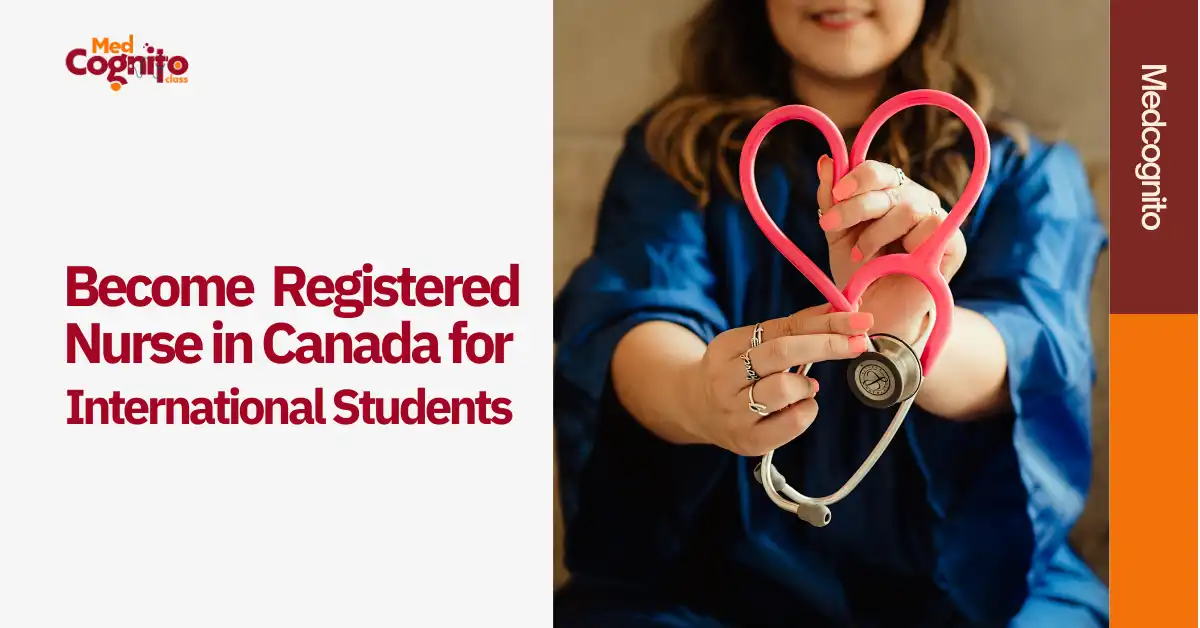Nursing is one of the most respected and rewarding careers in Canada. With a growing demand for healthcare professionals, Canada offers excellent opportunities for aspiring nurses.
However, the path to becoming a nurse requires specific educational qualifications, licensing, and certifications. This guide will walk you through the steps to start your nursing career in Canada.
Table of Contents
ToggleWho is a Nurse?
A nurse is a healthcare professional responsible for providing patient care, administering treatments, and offering emotional and physical support to individuals in medical settings such as hospitals, clinics, nursing homes, and community health centers.
Nurses play a critical role in diagnosing conditions, assisting doctors, and ensuring patient recovery.
Steps to Become a Nurse in Canada
1. Meet the Educational Requirements
The first step is to complete a nursing program from a recognized institution. The educational pathway depends on the type of nurse you want to become:
- Licensed Practical Nurse (LPN): Requires a 1-2 year diploma from a college or technical school.
- Registered Nurse (RN): Requires either a diploma (2-3 years) or a Bachelor of Science in Nursing (BSN) degree (4 years) from a university.
- Nurse Practitioner (NP): Requires a Master of Nursing (MN) or Doctor of Nursing Practice (DNP) after earning a BSN.
2. Pass the NCLEX-RN Exam
After completing your nursing education, you must pass the National Council Licensure Examination for Registered Nurses (NCLEX-RN). This exam assesses your ability to provide safe and effective nursing care.
3. Apply for Nursing Licensure
Each province and territory in Canada has its own regulatory body that licenses nurses. After passing the NCLEX-RN, you must apply for registration with your province’s nursing regulatory authority.
4. Meet Language Proficiency Requirements
If English or French is not your first language, you must take an approved language proficiency test such as:
- IELTS (International English Language Testing System)
- CELBAN (Canadian English Language Benchmark Assessment for Nurses)
5. Gain Practical Experience
While not always mandatory, having clinical experience through internships, co-op placements, or volunteer work can improve job prospects.
6. Maintain Your Nursing License
Once you obtain your nursing license, you must renew it periodically and meet continuing education requirements set by your province’s regulatory body.
7. Advance Your Career
Experienced nurses can specialize or move into leadership roles, such as:
- Nurse Practitioner (NP): Advanced patient care and prescribing medication
- Nurse Educator: Teaching in nursing schools or hospitals
- Nurse Manager: Overseeing healthcare teams and hospital operations
How Long Does it Take to Become a Nurse in Canada?
The duration depends on the nursing program you choose:
- Practical Nursing Diploma (LPN): 1-2 years
- Registered Nursing Diploma: 2-3 years
- Bachelor of Science in Nursing (BSN): 4 years
- Accelerated BSN: 2 years (for students with a prior degree)
- Nurse Practitioner (NP): Additional 2+ years after BSN
After completing your education, you must pass the NCLEX-RN and meet all licensing requirements before practicing as a nurse in Canada.
Salary of a Nurse in Canada
According to Talent, the average salary for a registered nurse (RN) in Canada is $72,936 per year ($37.40 per hour).
- Entry-level positions: $59,758 per year
- Experienced nurses: Up to $83,168 per year
Additional Eligibility Requirements
To qualify as a nurse in Canada, you may also need to:
- Provide a criminal record check
- Submit character references
- Complete jurisprudence or practical exams (depending on the province)
Prepare for the NCLEX with MedCognito
Passing the NCLEX-RN is essential for becoming a registered nurse in Canada. MedCognito’s NCLEX Prep Course offers expert guidance, practice exams, and study materials to help you succeed on your first attempt. Start your preparation today!
Conclusion
Becoming a nurse in Canada involves completing an accredited nursing program, passing the NCLEX-RN, and meeting provincial licensing requirements. While the journey requires dedication, it offers a fulfilling career with competitive salaries and job stability.
If you’re passionate about healthcare, now is the perfect time to start your journey toward becoming a nurse in Canada.
Frequently Asked Questions
What are the educational requirements for becoming a nurse in Canada?
To become a nurse in Canada, you must complete a nursing diploma (2-3 years) or a Bachelor of Science in Nursing (4 years) from a recognized institution.
Do I need to pass an exam to work as a nurse in Canada?
Yes, all registered nurses in Canada must pass the NCLEX-RN to become licensed.
Is language proficiency required for nurses in Canada?
Yes, internationally educated nurses must demonstrate English or French proficiency by taking tests like IELTS or CELBAN.
How much does a nursing degree cost in Canada?
A Bachelor’s degree in nursing costs around CAD 40,000 per year, including tuition and living expenses. Tuition fees average $18,806 per year for undergraduate programs and $12,183 per year for graduate programs, while living costs range from $10,000 to $16,500 per year.
Can internationally trained nurses work in Canada?
Yes, internationally trained nurses must complete a credential assessment through the National Nursing Assessment Service (NNAS) and fulfill language, licensing, and regulatory requirements to practice in Canada.
What is the difference between an RN and an LPN in Canada?
Registered Nurses (RN) require a diploma or BSN degree, have more responsibilities, and can work in specialized areas while Licensed Practical Nurses (LPN) require a 1-2 year diploma and provide basic nursing care under the supervision of RNs or doctors.
How can I specialize as a nurse in Canada?
Nurses can specialize in fields like pediatrics, oncology, critical care, anesthesiology, and mental health by completing postgraduate certifications or advanced degrees.
How often do I need to renew my nursing license?
License renewal requirements vary by province but typically require continuing education credits and periodic renewal applications.




